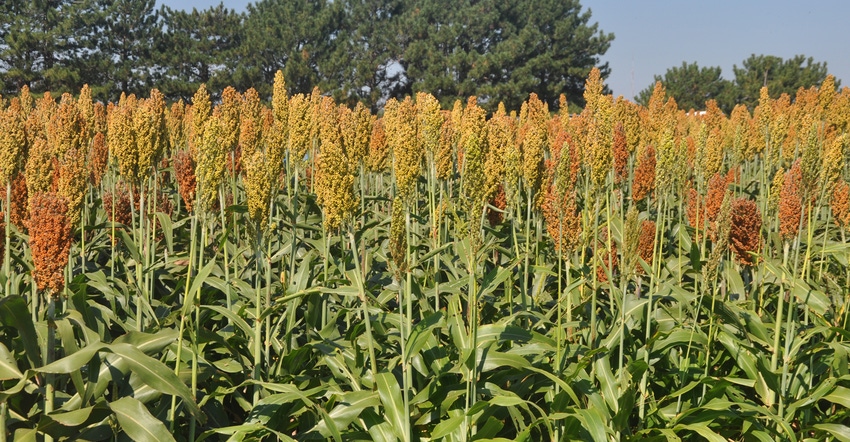July 30, 2018

By John Duff
Can you remember the last time a farm bill that had passed both chambers of Congress attracted fewer farm press headlines? While the farm bill is still the single farthest-reaching piece of legislation in American agriculture, the value of trade — today and in a future with a more level playing field — necessitates we give the ongoing trade dispute with China our full and undivided attention.
According to USDA data, sorghum farmers exported 63% of their crop in the 2017-18 marketing year, including 49% to China. That means every other row of sorghum planted in the U.S. last year found its way to China. The value of this trade was just over $1 billion, while the total value of trade to U.S. sorghum farmers was $1.1 billion.
Other commodities enjoy similar export demand, particularly from China. Over the last decade, the value of U.S. agricultural exports to the country increased by 136%, from $8.3 billion in 2007 to $19.6 billion in 2017, making China the second-largest trading partner for U.S. farmers. I do not have to remind anyone in agriculture that the first five years of this period were some of the most profitable in history, and few will argue the importance of trade in helping make this happen.
With so much value in trade, it is understandable that farmers are apprehensive about the ongoing negotiations. The impacts of uncertainty on farm profitability have been significant as sorghum farmers unfortunately can attest. Since China initiated its investigations into imports of U.S. sorghum on Feb. 4, sorghum basis has declined precipitously. The sorghum checkoff estimates the value sorghum farmers lost as a result of this decline is 37 cents to 79 cents per bushel — and this says nothing of the decline in corn futures prices since May.
The average sorghum farmer grows crops on less than 1,300 acres. Of these, approximately 600 are planted to sorghum each year. While many of these farmers receive income from off the farm or have diversified into value-added enterprises, sorghum is still the primary source of income for thousands of families across the U.S. These families cannot afford a loss of 37 cents to 79 cents per bushel across 600 acres.
Fortunately for farmers, the Trump administration has made its affinity for rural America clear. After all, farmers played a key role in the 2016 election, and this constituency stands to gain significantly from a fairer trade landscape. And, those of us in agriculture that have already benefitted from trade want to see other industries enjoy the same benefits. The challenge is preventing further economic hardship on the farm.
So, where do we go from here? Since at least the 2016 election, the only certain thing in the world of politics and policymaking has been uncertainty. The old rules no longer apply, so prognostication is difficult if not impossible. Regardless of the short-term outcomes of the ongoing negotiations, U.S. agricultural commodities are the most competitive on Earth. Consider this: When China terminated its original sorghum investigation in late May, the price of sorghum delivered to Houston for export was $182 per metric ton. That same week, the price of sorghum delivered to Brisbane, Australia, for export hit a record $385 per metric ton. The difference between these two prices translates to $5.16 per bushel.
A level playing field will unleash American agriculture in ways we never thought possible. However, to take advantage of the opportunities afforded by a level playing field, farmers must survive the current dispute. Rural America is under intense economic pressure, so it is paramount lawmakers and members of the Trump administration stand by farmers in this time need.
Duff is strategic business director for National Sorghum Producers.
You May Also Like




